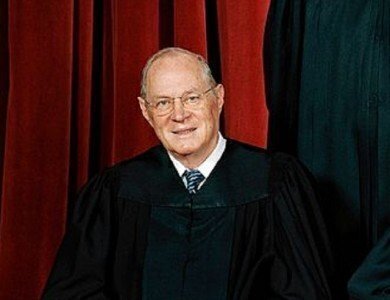The United States Supreme Court, in a majority opinion from Justice Anthony Kennedy, said on Monday that the President, and not Congress, has the power to determine how Jerusalem is listed on U.S. passports.
 Link: Read The Opinion
Link: Read The Opinion
In the 6-3 decision, Justice Kennedy affirmed that “the President has the exclusive power to grant formal recognition to a foreign sovereign.”
The decision upheld a lower court ruling that the Foreign Relations Authorization Act of 2002 was unconstitutional. The act directed the State Department to “record the place of birth as Israel” in the passports of Americans born in Jerusalem, if the children born in Jerusalem or their parents requested it.
The case was about a request to add the word “Israel” on a boy’s passport in 2002. Zivotofsky v. Perry involved young Menachem Binyamin Zivotofsky. Menachem’s parents are American citizens, and Menachem was born in Jerusalem.
Citing the 2002 law, the Zivotofskys asked the State Department for a passport for Menachem when he was two-months-old that listed “Jerusalem, Israel,” as his birthplace.
“The Constitution’s text and structure grant the President the power to recognize foreign nations and governments,” said Kennedy.
“Because the power to recognize foreign states resides in the President alone, §214(d) infringes on the Executive’s consistent decision to withhold recognition with respect to Jerusalem,” he said. “The provision forces the President, through the Secretary of State, to identify, upon request, citizens born in Jerusalem as being born in Israel when, as a matter of United States policy, neither Israel nor any other country is acknowledged as having sovereignty over Jerusalem.”
“Section 214(d)’s flaw is further underscored by the fact that the statute’s purpose was to infringe on the President’s exclusive recognition power,” Kennedy added. “While Congress may have power to enact passport legislation of wide scope, it may not ‘aggrandiz[e] its power at the expense of another branch’ by requiring the President to contradict an earlier recognition determination in an official Executive Branch document.”
Chief Justice John Roberts disagreed with the decision. “Today’s decision is a first: Never before has this Court accepted a President’s direct defiance of an Act of Congress in the field of foreign affairs,” Roberts said, who added that the decision underscored “the stark nature of the Court’s error on a basic question of separation of powers.”
Justice Antonin Scalia also dissented strongly.
“Recognition is a type of legal act, not a type of statement. It is a leap worthy of the Mad Hatter to go from exclusive authority over making legal commitments about sovereignty to exclusive authority over making statements or issuing documents about national borders. The Court may as well jump from power over issuing declaratory judgments to a monopoly on writing law-review articles,” Scalia said.
Justice Clarence Thomas concurred with one part of the majority decision and dissented with the remainder of the opinion.
“The President has long regulated passports under his residual foreign affairs power, and this portion of §214(d) does not fall within any of Congress’ enumerated powers,” Thomas said.
“By contrast, §214(d) poses no such problem insofar as it regulates consular reports of birth abroad. Unlike passports, these reports were developed to effectuate the naturalization laws, and they continue to serve the role of identifying persons who need not be naturalized to obtain U. S. citizenship. The regulation of these reports does not fall within the President’s foreign affairs powers, but within Congress’ enumerated powers under the Naturalization and Necessary and Proper Clauses,” Thomas added.
There had been a lot of discussion among legal scholars about the Zivotofsky case since November.
The supporters of the Zivotofsky argument for Congress pointed to the lack of any direction from the Founders that granted an exclusive power to the President to recognize a foreign nation; numerous passport laws passed by Congress since 1856; the ability of Congress to regulate immigration and foreign trade laws; and a Taiwan-People’s Republic of China recognition question resolved by Congress in 1994.
The supporters of executive powers argument believed the Founders were very clear that Article II reserved foreign policy powers to the President, including the powers to nominate ambassadors and to make treaties. These two powers depended on the ability of the President to recognize foreign nations, the supporters said.







